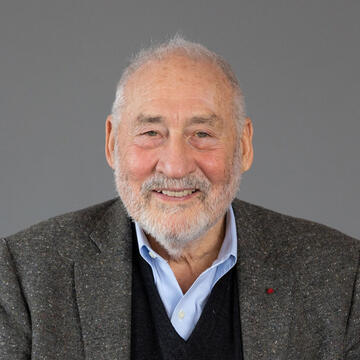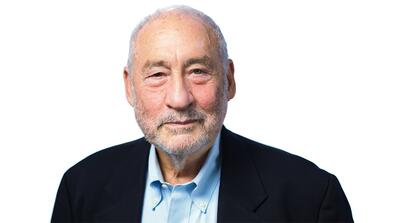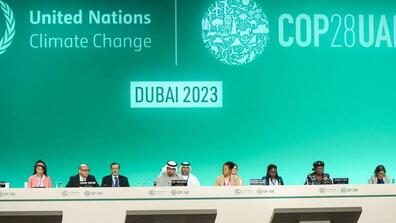Journal of Economic Behavior and Organization

Joseph E. Stiglitz
University Professor

Personal Details
Focus areas: Economics of information, economics of uncertainty, risk and agriculture, financial markets, growth and capital theory, natural resources, theory of market structure R&D, macroeconomics, monetary economics, international economics, development, distribution of income and wealth, welfare economics, comparative economic systems/organization theory, political economy, theory of taxation/public finance, theory of public expenditures
Joseph E. Stiglitz was born in Gary, Indiana, in 1943. A graduate of Amherst College, he received his PHD from MIT in 1967, became a full professor at Yale in 1970, and in 1979 was awarded the John Bates Clark Award, given biennially by the American Economic Association to the economist under 40 who has made the most significant contribution to the field. He has taught at Princeton, Stanford, MIT and was the Drummond Professor and a fellow of All Souls College, Oxford. He is now University Professor at Columbia University in New York. He is also the Co-Founder and Co-President of the Initiative for Policy Dialogue at Columbia and Chief Economist of the Roosevelt Institute. In 2001, he was awarded the Nobel Prize in Economics for his analyses of markets with asymmetric information, and he was a lead author of the 1995 Report of the Intergovernmental Panel on Climate Change, which shared the 2007 Nobel Peace Prize. In 2011, Time named Stiglitz one of the 100 most influential people in the world.
Stiglitz was a member of the Council of Economic Advisers from 1993–95, during the Clinton administration, and served as CEA chairman from 1995–97. He then became Chief Economist and Senior Vice-President of the World Bank from 1997–2000. In 2008 he was asked by the French President Nicolas Sarkozy to chair the Commission on the Measurement of Economic Performance and Social Progress, which released its final report in September 2009 (published as Mismeasuring Our Lives). He now chairs a High Level Expert Group at the OECD attempting to further advance these ideas. In 2009 he was appointed by the President of the United Nations General Assembly as chair of the Commission of Experts on Reform of the International Financial and Monetary System, which also released its report in September 2009 (published as The Stiglitz Report). Since the 2008 financial crisis, he has played an important role in the creation of the Institute for New Economic Thinking (INET), which seeks to reform the discipline so it is better equipped to find solutions to the great challenges of the 21st century.
Stiglitz helped create a new branch of economics, "The Economics of Information," exploring the consequences of information asymmetries and pioneering such pivotal concepts as adverse selection and moral hazard, which have now become standard tools not only of theorists, but of policy analysts. He has made major contributions to macroeconomics and monetary theory, development economics and trade theory, public and corporate finance, theories of industrial organization and rural organization, and theories of welfare economics and income and wealth distribution. In the 1980s, he helped revive interest in the economics of R&D.
His work has helped explain the circumstances in which markets do not work well, and how selective government intervention can improve their performance.
Recognized around the world as a leading economic educator, he has written textbooks that have been translated into more than a dozen languages. His book Globalization and Its Discontents (W.W. Norton, 2001) was translated into 35 languages and sold more than one million copies worldwide. His other books include The Roaring Nineties (W.W. Norton, 2003); Towards a New Paradigm in Monetary Economics, with Bruce Greenwald (Cambridge University Press, 2003); Fair Trade for All, with Andrew Charlton (Oxford University Press, 2005); Making Globalization Work (W.W. Norton and Penguin/Allen Lane, 2006); The Three Trillion Dollar War: The True Cost of the Iraq Conflict, with Linda Bilmes of Harvard University (W.W. Norton and Penguin/ Allen Lane, 2008); and Freefall: America, Free Markets, and the Sinking of the World Economy (W.W. Norton and Penguin/Allen Lane, 2010).
His most recent books are People, Power and Profits (W.W. Norton, 2019); The Price of Inequality: How Today's Divided Society Endangers Our Future (W.W. Norton and Penguin/Allen Lane, 2012); Creating a Learning Society: A New Approach to Growth, Development, and Social Progress, with Bruce Greenwald (Columbia University Press, 2014); The Great Divide: Unequal Societies and What We Can Do About Them (W.W. Norton and Penguin/Allen Lane, 2015); Rewriting the Rules of the American Economy: An Agenda for Growth and Shared Prosperity (W.W. Norton, 2015); and The Euro: How a Common Currency Threatens the Future of Europe (W.W. Norton and Penguin/Allen Lane, 2016).
Education
- PhD, Massachusetts Institute of Technology
- BA, Amherst College
Affiliations
- University Professor, Columbia University
- Chief Economist of The Roosevelt Institute
- Co-founder and Co-President of the Initiative for Policy Dialogue (IPD)
- Co-Chair of the High-Level Expert Group on the Measurement of Economic Performance and Social Progress, OECD
Honors and Awards
- Nobel Prize in Economics, 2001
- Nobel Peace Prize, 2007 (shared)
- American Economic Association's John Bates Clark Award, 1979
Research And Publications
American Economic Review
Oxford University Press
In The Media
Joseph Stiglitz writes: “Tech companies know that if there is an open, democratic debate, consumers’ concerns about digital safeguards will easily trump concerns about their profit margins.”
Joseph Stiglitz said that depending on the outcome of the 2024 U.S. presidential election, “The rest of the world will have to figure out how to work without that kind of leadership [of democracy].”
Scott Barrett, Noah Kaufman and Joseph Stiglitz write that instead of focusing so much on international climate conferences that require unanimous support, rely on hollow voluntary commitments, and ultimately have little effect on emissions, policymakers should be pursuing narrower binding agreements.
Joseph Stiglitz spoke about the future of Hong Kong, saying it should diversify its investment strategy and take full advantage of its unique status within China to explore new development opportunities.
Joesph Stiglitz, with his co-author, writes that Ukraine urgently needs the funds confiscated from Russian assets to win the war, and that failing to make these resources available now is unconscionable from the United States and Europe.




